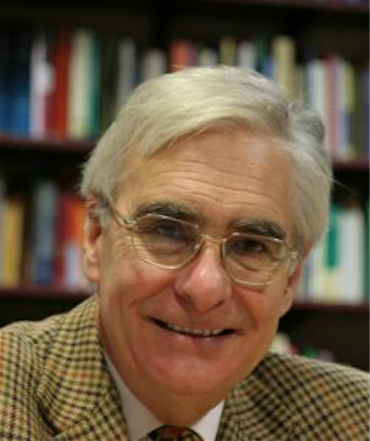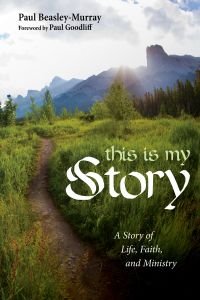'This Is My Story': Paul Beasley-Murray on a life in ministry
If there were a collective noun for British Baptists it would be something like 'an argument'. As one myself, I don't think we are a naturally co-operative denomination. Our ministers are not natural followers, and are not remotely impressed by those whose profile is higher than theirs. Respect has to be earned by solid achievement and hard work; it certainly doesn't come with a title.

One of those who's earned that respect during the last few decades is Rev Dr Paul Beasley-Murray. He's been a missionary, a college principal, had two significant pastoral ministries and has thrown himself into the business of raising standards of ministry in his own denomination and much more widely. Now in early 'retirement' – not a word he likes much – he's written This Is My Story, an autobiography that should be required reading for anyone seeking to understand British Baptist life from the 1960s to the present day.
The book starts in classical fashion with his parentage; his father George was a first-rate biblical scholar and also a Baptist name to conjure with and his son acknowledges his influence over him. Beasley-Murray junior was educated in Switzerland (George taught at the International Baptist Theological Seminary in Ruschlikon) before the family returned to England where George became principal of Spurgeon's. He studied at Cambridge, where he met his wife Caroline, and trained for ministry at Northern Baptist College. After two years as missionaries in Zaire (now DRC) they returned for Paul to take up the pastorate at Altrincham in Cheshire, which saw considerable growth under his ministry. From there he became principal at Spurgeons before leaving under difficult circumstances and becoming pastor at Chelmsford, which was also a fruitful and productive ministry. Alongside these appointments there were also significant undertakings in wider ministry, such as his involvement with Mainstream, Ministry Today and the College of Baptist Ministers.
What makes any autobiography more interesting than just a list of achievements, however, is the willingness of its author to be candid, not just about other people's failings but their own. Beasley-Murray isn't vindictive, but he is frank when he thinks people haven't come up to scratch (though generous when they have). FF Bruce sounds like a nightmare as a research supervisor. Good autobiographies ought to be spiky, as this one is.
Most of those Baptists who know of his tenure at Spurgeon's and its unhappy termination don't know any of the details; I certainly didn't. Writing carefully, he has shared what he feels he can. While he would be the first to agree that this is only one side of the story, it was clearly an extraordinarily painful and unedifying affair. What is most creditable about the telling of it is his admission of the hurt he felt; there is no attempt to minimise things or tough it out.

Self-knowledge for many of us is dearly bought, and no doubt it was for him. In a fascinating postscript he shares two independent analyses of his own leadership style. They reveal someone who is intelligent, driven, focused and goal-orientated. Someone like this is bound to upset people at times, but they are very likely to get a lot done.
Beasley-Murray managed to do this without losing his grounding in pastoral reality, and as a result his contribution to the practice of ministry has been very considerable. It is not over yet; he continues to be active, though now at Chelmsford Cathedral rather than a Baptist church, and he writes a regular blog.
'This Is My Story' is published by Wipf and Stock.











